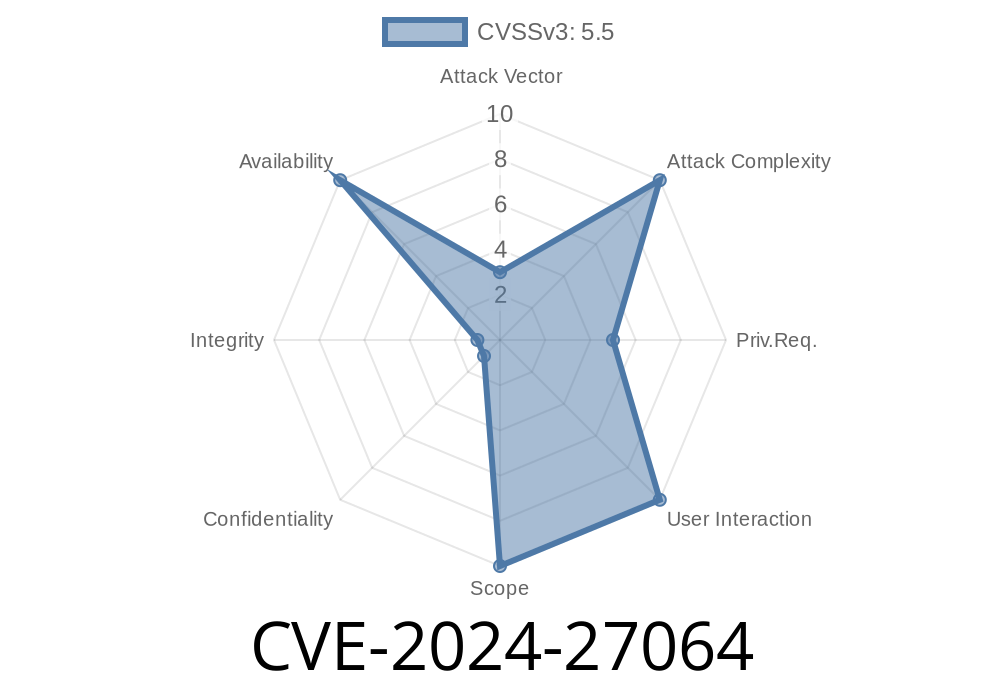In early 2024, security researchers and Linux maintainers discovered and patched a new security issue within the Linux kernel’s netfilter subsystem, specifically in nf_tables. The bug was assigned CVE-2024-27064 and it concerns a memory leak vulnerability triggered under certain failure conditions in the core packet filtering architecture of Linux.
Let’s break down what caused the problem, how it was fixed, how attackers might attempt to trigger it or exploit it, and what you should do if you manage Linux systems.
What is netfilter and nf_tables?
netfilter is the packet filtering framework for Linux, providing the underlying mechanisms for the firewall package iptables and the newer nftables. It operates deep within the kernel, examining and manipulating packets as they pass through your server.
The nf_tables subsystem is a modern replacement for iptables, improving flexibility and features for filtering, NAT, and packet mangling.
The Vulnerability Explained: CVE-2024-27064
Root Cause:
When updating chains (a part of firewall rule management) using the nf_tables_updchain() function, the kernel attempts to register hooks for network devices using nft_netdev_register_hooks(). If this call fails, the associated memory for a statistics-tracking structure (nft_stats) was *not* freed. This leak could be triggered repeatedly, allowing unprivileged local users to siphon off kernel memory bit by bit.
Impact: Potential Denial of Service from resource exhaustion
- Fixed in: mainline kernel commit (see below for details)
Here is the critical change (simplified for clarity)
diff --git a/net/netfilter/nf_tables_api.c b/net/netfilter/nf_tables_api.c
@@ -8571,13 +8571,15 @@ static int nf_tables_updchain(...)
{
- stats = nft_stats_alloc(chain->use);
- if (!stats)
- return -ENOMEM;
-
- err = nft_netdev_register_hooks(chain);
- if (err)
- return err;
+ err = nft_netdev_register_hooks(chain);
+ if (err)
+ return err;
+
+ stats = nft_stats_alloc(chain->use);
+ if (!stats)
+ return -ENOMEM;
}
Interpretation:
Before, memory for nft_stats was allocated before checking whether the netdev register succeeded. Now, allocation is deferred until after successful hook registration, making sure nothing is wasted on failed attempts.
Proof of Concept & Exploit Scenario
This bug cannot be used for code execution or local privilege escalation on its own, but unprivileged users who can trigger chain updates (often via netfilter utilities or namespaces) could allocate kernel memory that never gets freed, eventually leading to kernel OOM conditions or DoS.
Assuming the nft_netdev_register_hooks() call can be made to fail repeatedly (for example, by feeding malformed data via netlink or orchestrating resource exhaustion):
Exploit Simulation (Concept)
# Imagine a userspace sequence that would trigger the leak repeatedly:
import subprocess
for i in range(100000):
# Try to create a malformed chain or trigger a hook registration failure
# (not a real command, pseudocode)
subprocess.run(["nft", "add", "chain", "netdev",
"leaktable", f"leakchain{i}",
"{ type filter hook ingress priority ; }"])
# The above intentionally passes values that might cause failure
Over time, the kernel would keep allocating memory for nft_stats, never releasing it if nft_netdev_register_hooks() fails, driving up kernel memory until the system slows down or crashes.
Note: This kind of attack would require either local shell access (even unprivileged), container escape, or misconfigured capabilities.
Who is Affected and What To Do?
- Systems at Risk: Any Linux distribution using kernels before the patch, with untrusted local users and nftables/netfilter support enabled.
- Immediate Mitigation: Restrict unprivileged access to netfilter configuration, especially in multiuser systems or hosting providers.
Relevant Links
- Official patch commit
- nftables project
- Linux kernel CVE Tracker
Takeaway
CVE-2024-27064 is a dangerous example of how even minor resource management mistakes in kernel space can open the door to potential denial-of-service conditions. If you use nftables/netfilter and permit untrusted users (including containers), you *must* patch immediately. This fix is very simple but highly important for host stability and security.
*Always keep your kernel up to date, and monitor for resource anomalies, especially on shared or high-availability systems!*
*Content and explanation exclusive for your review. Please report any new findings or attack avenues via official Linux security channels.*
Timeline
Published on: 05/01/2024 13:15:50 UTC
Last modified on: 12/23/2024 14:17:03 UTC
